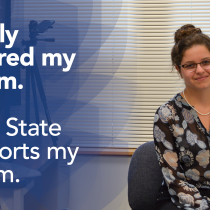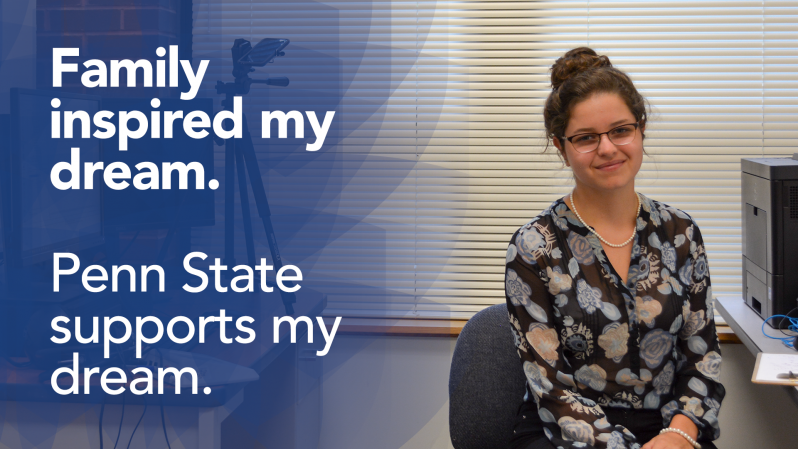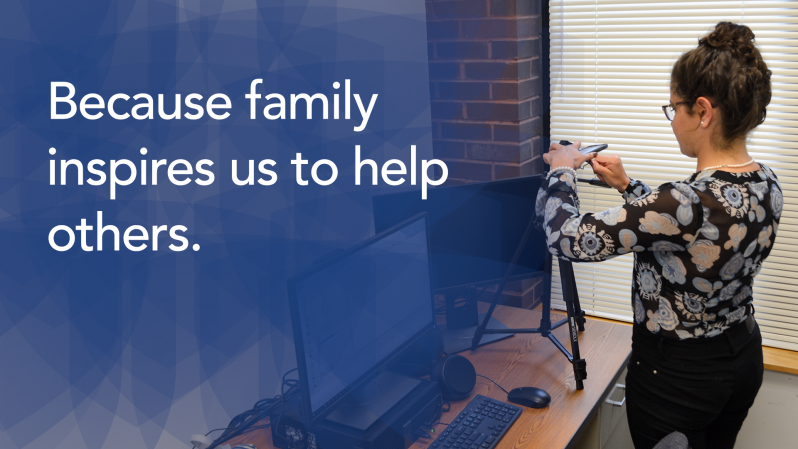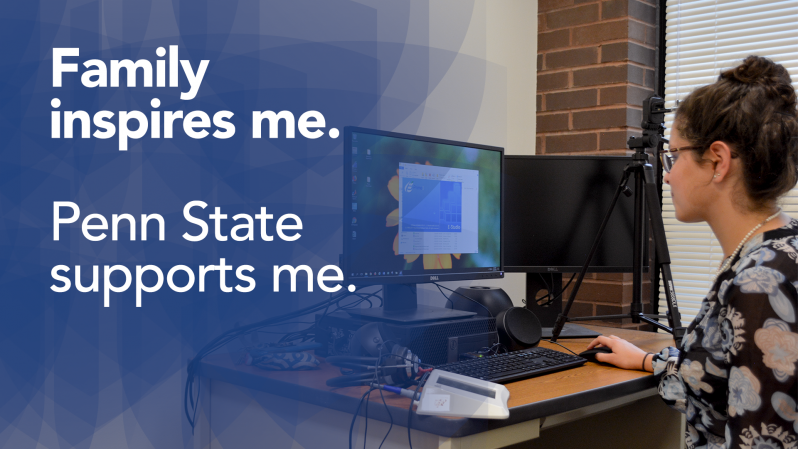Student Research Spotlight - Alexis Basciano

Growing up with a brother who is autistic, Alexis Basciano saw firsthand the struggles he faced to express when he felt certain emotions.
Basciano is also passionate about music and a talented musician, spending most of her life singing in choirs and playing musical instruments, including today as a member of the Penn State Blue Band. She’s seen how music can evoke all sorts of emotions in people.
By combining her passion for music and love for her brother, Basciano was inspired to conduct a research project to better understand how individuals with autism identify and express their emotions through music. She hopesto use the findings to create a better understanding of how autistic individuals perceive and share their emotional experiences.
Basciano, who is majoring in biological sciences and health professions in the Eberly College of Science, is working with Diane Williams, professor and head of the Department of Communication Sciences and Disorders and director of the Cognition and Language Learning Lab in the College of Health and Human Development.
“Music is an emotional work of art,” Basciano said. “All music conveys some sort of emotion. Having these individuals in the research project react to these emotional pieces provides a good insight into the way autistic individuals experience and express complex emotions.”
For the research project, autistic adults come into lab where their hearing and vision are evaluated. They are next tested for nonverbal intelligence and overall vocabulary and interviewed by Williams. Then, participants begin an emotional appraisal of orchestral music, something Basciano created through computer coding.
Emotional appraisalis essentially identifying the emotion of the piece of music. For Basciano’s project, participants first listened to a short piece of orchestral, lyric-less music and then type open-ended responses about the emotion the music conveys. Later, participants listened to the same music samples and were then prompted to choose only one emotional word label: happy, sad, scared or calm.
“The differences in the nature of responses as well as the elapsed time will provide some indication of how autistic individuals interpret and express more complex emotions,” Basciano said.
Basciano’s role in the project, in addition to coding, has included administering hearing, vision, and intelligence tests, filing paperwork, and preparing the lab for participants, recruiting participants, testing participants, and organizing relevant data.
Basciano said she was drawn to the Cognition and Language Learning Lab because of the research being done there.
“I first approached Dr. Williams about research because I was looking for a unique research experience. I knew Dr. Williams specialized in autism research, and this was especially of interest to me because of my experiences with growing up with a brother on the autism spectrum,” Basciano said. “I met with Dr. Williams and spoke of my experiences and interests with autism and she agreed to let me join her lab.”
Basciano started out volunteering with Williams’ graduate students, helping them with their research projects in the Cognition and Language Learning Lab. Then, Basciano became interested in starting her own research project.
“I had the privilege of turning my initial question, ‘how do autistic individuals experience and express emotions?’ into something that is very meaningful to me as well as the scientific community,” Basciano said.“Dr. Williams helped me to make my questions testable.”
Basciano’s research was supported through the College of Health and Human Development summer research opportunities program, an initiative that promotes undergraduate student participation in research projects, affording them real world opportunities and mentoring from experts in their respective fields.
Basciano said her research experience has made her more confident and independent in her overall academic potential.
“This research project provided me with the opportunity to speak and collaborate with others, for instance, my research adviser, Dr. Williams,” Basciano said. “She taught me to think scientifically and critically, and most of all was very encouraging and supportive throughout the research project.”
Basciano said she is looking forward to the future and applying what she’s learned in the lab to the real world to better understand and serve the autistic community.



